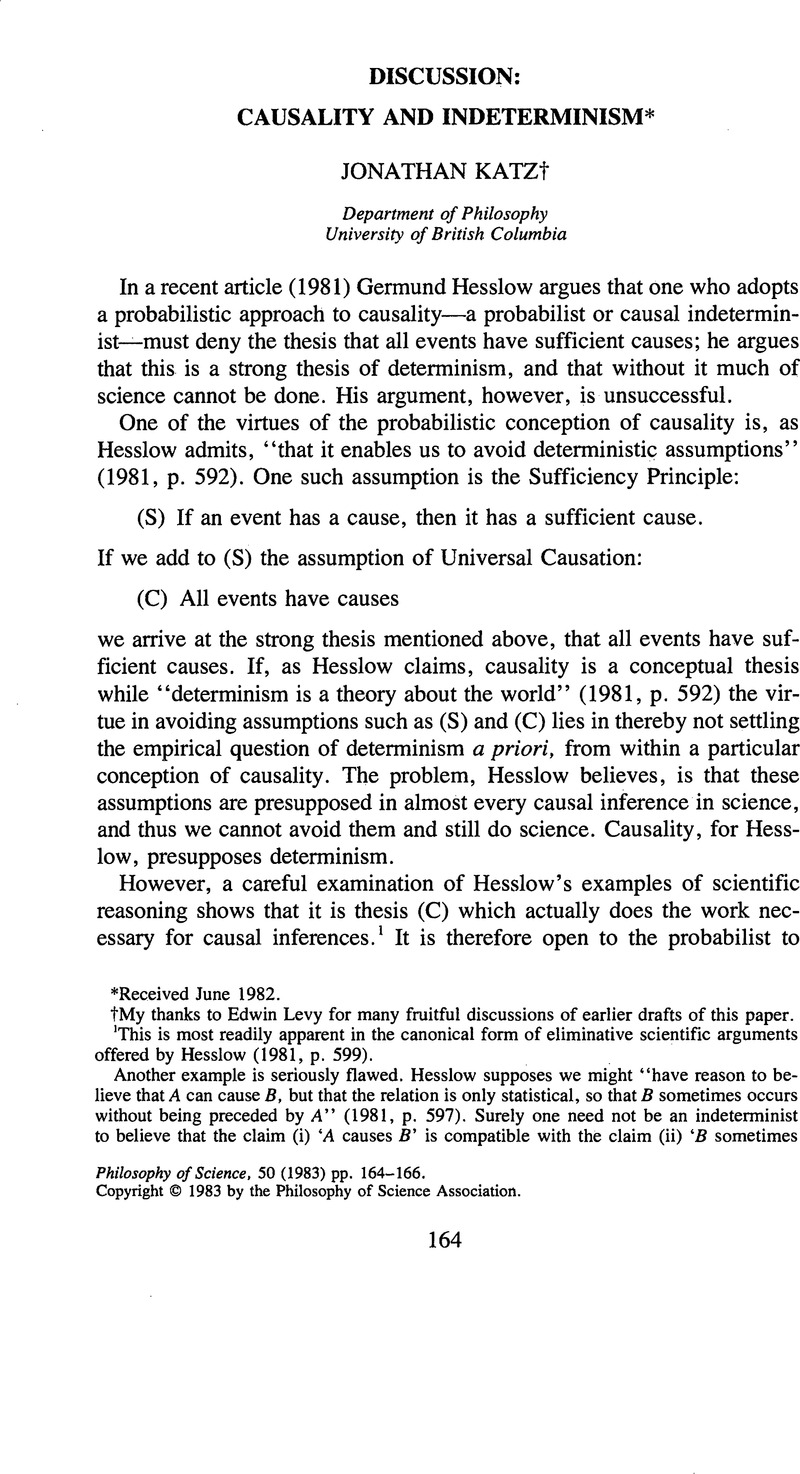Article contents
Discussion: Causality and Indeterminism
Published online by Cambridge University Press: 01 April 2022
Abstract

- Type
- Discussion
- Information
- Copyright
- Copyright © 1983 by the Philosophy of Science Association
Footnotes
My thanks to Edwin Levy for many fruitful discussions of earlier drafts of this paper.
This is most readily apparent in the canonical form of eliminative scientific arguments offered by Hesslow (1981, p. 599).
Another example is seriously flawed. Hesslow supposes we might “have reason to believe that A can cause B, but that the relation is only statistical, so that B sometimes occurs without being preceded by A” (1981, p. 597). Surely one need not be an indeterminist to believe that the claim (i) 'A causes B' is compatible with the claim (ii) ‘B sometimes occurs without being preceded by A'. The only ones who would deny the compatibility would be those who believe that a cause must be necessary for its effects. In contrast, what is special—though not unique—to the causal indeterminist postion is that (i) is compatible with (iii) 'A sometimes occurs and is not followed by B'.
References
- 1
- Cited by




